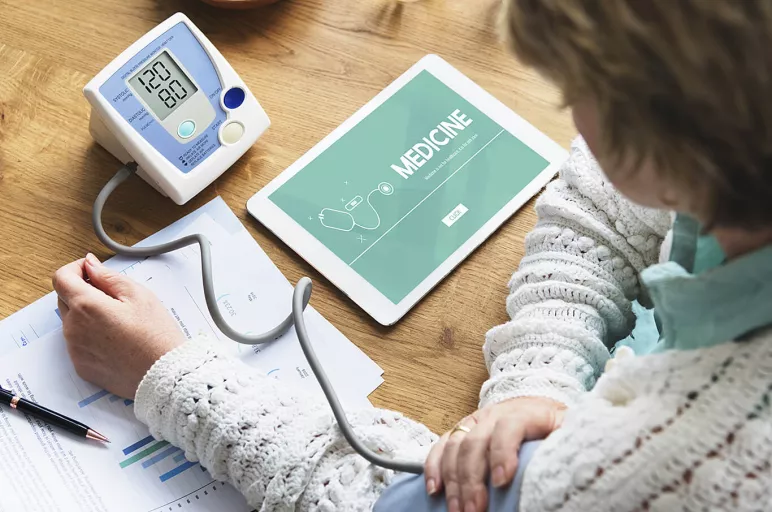
Innovations in Healthcare by Major Technology Players
August 03, 2017 | Pharma and Life Sciences
The healthcare industry is gaining increasing attention from major technology companies like Alphabet, Apple and IBM. By leveraging their expertise in domains like artificial intelligence and machine learning, they help pharma and medical device companies analyze big data generated in the healthcare value chain. This includes data collected from clinical trials, electronic health records (EHR), wearables and other sources. Companies can then use the analysis to understand patient behavior, reduce inefficiencies, improve current products and lifecycles, and develop more innovative products.
Technology companies are making significant investments in today’s lucrative healthcare domain. Recent and rapid technological advancements have tremendously enhanced their capabilities which, combined with the rise of artificial intelligence and machine learning, provide them opportunity to disrupt the healthcare status quo. This opens future possibilities like the ability to use a Google-like symptom search to self-diagnose a condition. Medical practitioners can leverage IBM’s machine intelligence to scan through big data, including doctor notes, medical literature, past medical history, parameters like age, sex, or known allergies and come up with the best suitable treatment plan.
Let’s discuss the efforts of major technology companies in the healthcare space:
Alphabet
- Verily Life Sciences: Alphabet has a dedicated arm for life sciences known as Verily Life Sciences, that focuses on medical devices such as surgical robots and glucose-sensing contact lenses. They recently invested in a fund with Novartis, European Investment Fund and Medixi, expanding their footprint in the drug development space. Following are the key projects of Verily:
- Miniaturized Continuous Glucose Monitoring: Verily partnered with Dexcom to build miniaturized sensor electronics for CGM
- Smart Lens: Clearly showing its intention and interest in glucose monitoring space, Verily and Alcon have partnered to develop smart ocular devices to detect glucose levels
- Research at Google:
- Using their expertise in Deep Learning, the research team at Google have made huge strides in diagnostic screening of diabetic retinopathy using algorithms whose performance has been claimed on par with U.S. board-certified ophthalmologists
- Google researchers have also developed algorithms to help detection of breast cancer in lymph node biopsies
Apple
- Glucose Monitoring: Apple has partnered with Dexcom to develop a glucose-monitoring device with the Apple Watch.
- Apple’s Kits: Apple ResearchKit was launched in 2015. It provides a library of coding to create health apps on Apple Devices, and in turn potentially make millions of iPhones a tool for medical research. Currently hospitals like Stanford Medicine, Oxford and Dana-Farber Cancer Institute use Apple’s HealthKit, CareKit and ResearchKit to collect data and remotely monitor patients.
- Personal Health Records Project: Apple is challenging itself to develop a single unified personal health record that can capture your daily routine and clinical information like disease, medication, prior history, lab results and others. As a part of this ambition, Apple acquired the personal health data startup Gliimpse, which enabled simplified gathering and sharing of an individual’s health data.
- Apple’s Digital Healthcare initiative: Apple agreed to a business relationship with medical devices giants Medtronics, J&J and AI leader IBM Watson. In this deal, Apple and IBM Watson will integrate apps for Apple Kits, enabling them to collect data from consumers and use it for clinical trials. Medtronic and J&J will enable creation of an Internet of Things (IoT) environment using Watson to collect patient data.
IBM
- Apart from its strategic partnerships with pharma and medical devices companies, IBM has rapidly invested into healthcare data analytics domain by acquiring companies such as Truven Health Analytics (provides healthcare data and analytics services), Explorys (identifies disease & treatment patterns using cloud computing), and Phytel (provider of cloud based population health management software). IBM also acquired Merge Healthcare, a medical imaging management company for $1 billion in 2015.
- IBM recently disclosed it has developed machine learning algorithms to diagnose and determine the severity of schizophrenia at a 74% accuracy level.
Considering all the developments and investments in the healthcare space, technology companies appear to be focused on:
- Generating data, data and more data: Companies use their technological prowess to create products (apps, toolkits, connected devices) that are user-friendly for their target audience in order to generate massive structured data. They are also tapping into data generated from clinical trials, EHR records, medical literature and others.
- Un-complicating medical records: Companies are also making efforts toward unifying/ collating/ standardizing discrete pockets of data generated by healthcare providers, electronic healthcare records and other sources.
- Machine learning: Once data is in place, they use machine learning to identify patterns and develop expertise in disease diagnosis. Post-diagnosis, AI is used to identify the best course of action, using existing knowledge and literature on the disease’s treatment and care.
This foray of technology majors into the healthcare domain is certainly disrupting the industry. For innovative pharma and medical devices companies, these disruptions provide tremendous opportunities to harness the powers of AI, machine learning and computing. Collaboration with technology companies can help the healthcare sector identify and target new molecules; design better devices; have more efficient clinical trials; develop new, efficient, technology driven disease identification methods; make personalized treatment a reality; have better post-treatment patient monitoring by leveraging IoT environment; generate more structured useful data for analysis and ultimately increase the efficiency of their present molecule discovery to drug and device lifecycles.



